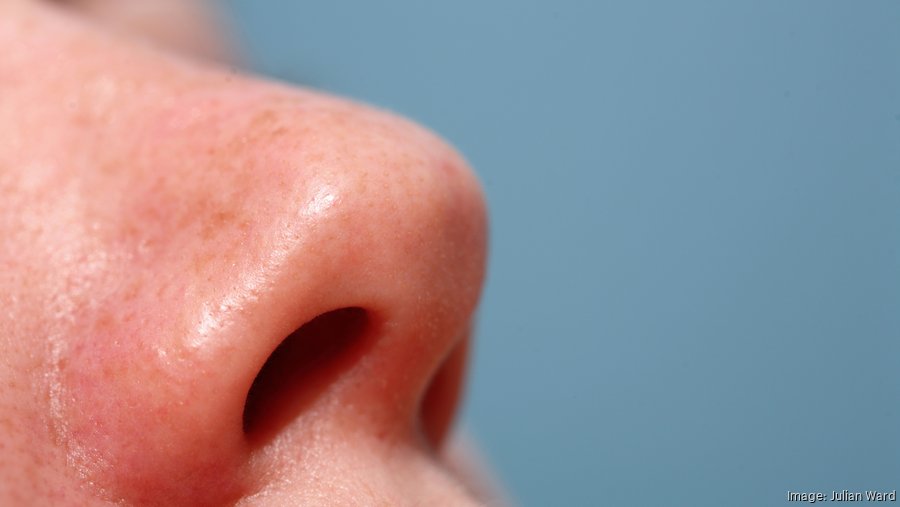Listen to this article 3 min
The thin cartilage separating our nasal passages can be a full-blown nuisance. But leaders of a Peninsula medical device startup believe they can straighten out nasal septal deviations for potentially hundreds of thousands of people.
Spirair, founded by Stanford University graduate students James Kintzing and Brandon McCutcheon, could win Food and Drug Administration clearance of its delivery system as early as next month. Its absorbable implant was greenlighted by the agency in August.
Now the company, launched during the Covid-19 pandemic and incubated in Stanford's biodesign summer extension program and the Fogarty Innovation incubator in Mountain View, hopes to raise $25 million to $30 million through a Series B round to roll out the product commercially.
Kintzing, who earned his Ph.D. in bioengineering at Stanford, and McCutcheon, a neurosurgeon, were paired in the Stanford biodesign innovation fellowship in 2019-20. Their project focused on the ear-nose-throat, or ENT, space and how to fix nasal obstructions during a doctor office visit.
They raised a $15 million Series A in 2021 that came from Sonder Capital and View Ventures.
Spirair has no shortage of potential patients. In millions of people, the septum barrier has shifted to the point that the cartilage, which normally divides the nose into roughly equal halves, interrupts typical airflow. That translates into lifelong sleep troubles, reduced energy and a generally lower quality of life, said Ben Bishop, who joined the 16-person South San Francisco company in January as president and CEO.

Septal deviations can be caused as we shimmy through the birth canal into life; other times, it can occur with a trauma, like a ball to the nose. Whatever moves the cartilage off midline is potentially bothersome.
"In the nose, small changes really make a big difference," said Bishop, a veteran of venture-backed medical device companies who had joined Spirair's board last year.
While patients with mild symptoms can use over-the-counter antihistamines, nasal decongestants or steroids as workarounds, about a half-million people a year in the United States, undergo effective but invasive surgery, Bishop said. The surgical route also has challenges with recovery, since patients are put on a general anesthetic and the procedure can cause the area around the eyes to turn black and blue for days.
Spirair's procedure is minimally invasive, uses a local anesthetic, and can be done at a doctor's office, rather than a hospital or surgical center. What's more, some patients in Spirair's first clinical trials immediately returned to work after the procedure.
The delivery system, looking somewhat akin to a fireplace lighter but smaller, is pushed through a small incision that creates a channel in the mucosa, the soft tissue that lines the inside of the nose. The delivery vehicle goes past the deviation and the doctors presses a button to pull back and expose a tiny needle that crosses the septum.
The implant is attached to the needle, and when the needle is retracted, the implant catches and becomes anchored there. The needle then is threaded out through the incision where it is tied up, providing leverage for the anchored implant.
"They don't feel the implant at all," Bishop said. "It is a structural solution."
In animals, the implant pushes the cartilage into place over about five weeks, he said, and then the implant dissolves.
Spirair now is undertaking its second, 60-person clinical trial.
"We believe the durability will be longstanding," Bishop said.
Total Companywide Revenue Volume 2021
| Rank | Prior Rank | Business name |
|---|---|---|
1 | 1 | Agilent Technologies Inc. |
2 | 2 | Intuitive Surgical Inc. |
3 | 3 | The Cooper Cos. Inc. |





